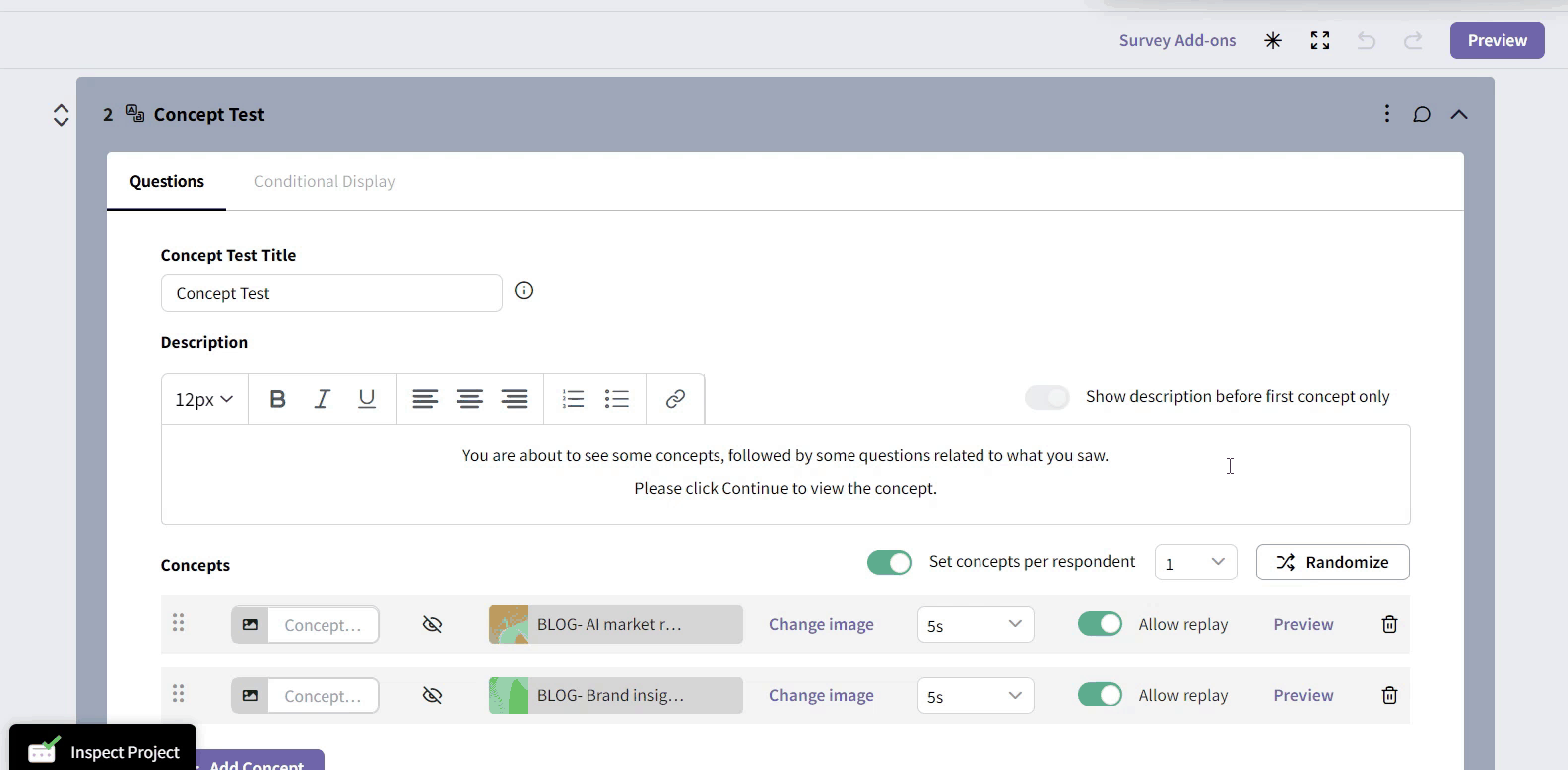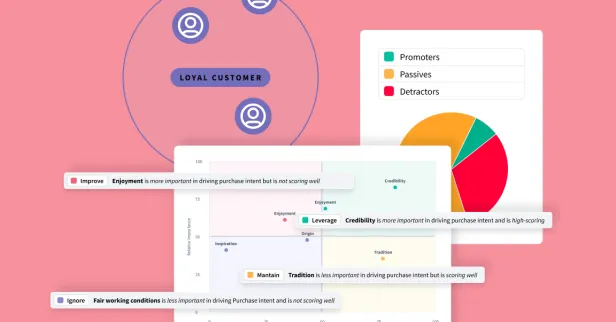When developing and testing a new product concept, gathering feedback from your target market is essential.
Asking the right audience the right questions can provide valuable insights you can use to make better decisions and increase your product's likelihood of success. Today, we'll cover 15 questions you should be asking during concept development to better understand your ideal customer's preferences, pain point, and needs.
1. "What Problem Does This Concept Solve for You?"
Understanding the core issue your product addresses ensures it meets a real need. This question helps identify if your concept is relevant and valuable to your target audience. Knowing your customers' specific problems allows you to effectively tailor your product to solve those issues.
2. "How Satisfied Are You with Current Solutions?"
Assessing satisfaction with existing solutions reveals gaps and opportunities. If users are dissatisfied with current options, your concept might have a stronger appeal. This information can help you position your product as a superior alternative that better meets customer needs.
3. "What Features Are Most Important to You?"
Identifying critical features helps prioritize development efforts and ensures you focus on what matters most to your users. By understanding which features are most valued, you can allocate resources effectively and create a product that delivers maximum value to your customers.
4. "How Would You Rate the Usability of This Concept?"
Ease of use is a key factor in product adoption. Feedback on usability helps refine the design to make it more user-friendly. A product that is intuitive and easy to use is more likely to be embraced by users and can lead to higher satisfaction and retention rates.
5. "How Likely Are You to Use This Product?"
This question gauges overall interest and potential adoption rates. A high likelihood of use indicates a promising concept. Understanding user intent to adopt your product can help predict its success and guide marketing and launch strategies.
6. "What Do You Like Most About This Concept?"
Positive feedback highlights strengths and unique selling points, which can be emphasized in marketing and development. Knowing what users appreciate about your concept allows you to highlight these features and build on them in your product development.
7. "What Do You Dislike or Find Challenging About This Concept?"
Constructive criticism identifies areas for improvement. Addressing these concerns can enhance the overall user experience. By understanding user frustrations or challenges, you can make necessary adjustments to better meet their needs and expectations.
8. "How Does This Concept Compare to Existing Products?"
Understanding how your concept stacks up against competitors helps identify differentiators and areas needing improvement. This comparison can provide insights into your product's competitive advantage and guide strategies to enhance its market position.
9. "What Price Would You Consider Reasonable for This Product?"
Price sensitivity insights help set a competitive yet profitable pricing strategy. Understanding what users are willing to pay can guide your pricing decisions and help ensure that your product is both attractive to customers and financially viable.
10. "What Additional Features or Enhancements Would You Like to See?"
User suggestions for additional features can inspire future development and ensure the product evolves with market needs. Gathering ideas from users can lead to innovative improvements and keep your product relevant and competitive over time.
11. "How Important Is Brand Trust in Your Decision to Use This Product?"
Brand perception plays a significant role in adoption. Understanding its impact helps shape your branding and marketing strategies. Building and maintaining brand trust can be crucial for attracting and retaining customers.
12. "Would You Recommend This Product to Others?"
Willingness to recommend indicates strong approval and can predict word-of-mouth marketing potential. Positive referrals can significantly boost your product's reach and credibility in the market.
13. "What Concerns or Barriers Would Prevent You from Using This Product?"
Identifying potential obstacles allows you to address them proactively, increasing the likelihood of product success. By understanding and mitigating these concerns, you can improve the overall appeal and usability of your product.
14. "How Frequently Would You Use This Product?"
Usage frequency insights help estimate demand and can guide production and inventory decisions. Knowing how often users plan to use your product can also inform feature development and customer support planning.
15. "What Improvements Would Make This Concept More Appealing?"
Direct suggestions for improvements can lead to actionable changes that enhance the product's market fit. By incorporating user feedback into your development process, you can create a product that better meets their needs and stands out in the market.
Incorporating These Questions into Your Concept Development & Testing
Asking your target market these questions during your concept development process can give you powerful insights to help your product succeed.
Using concept testing tools, like SightX, you can add these questions (and any others you might have) to a concept test in minutes and send it off to an audience you select.

Concept Testing with SightX
SightX is an AI-driven market research platform that makes concept testing a breeze with Generative AI. While powerful enough for teams at Fortune 500 companies, our user-friendly interface makes it simple for anyone to start, optimize, and scale their own concept testing research.
With our Generative AI consultant, Ada, you can harness the power GPT to build concept tests in seconds. And once your data is collected, Ada will analyze, summarize and report on your findings, picking out key insights in seconds and making recommendations on ways to apply the feedback to your concepts.
Curious? Let us show you how simple it can be to collect powerful concept testing data.
